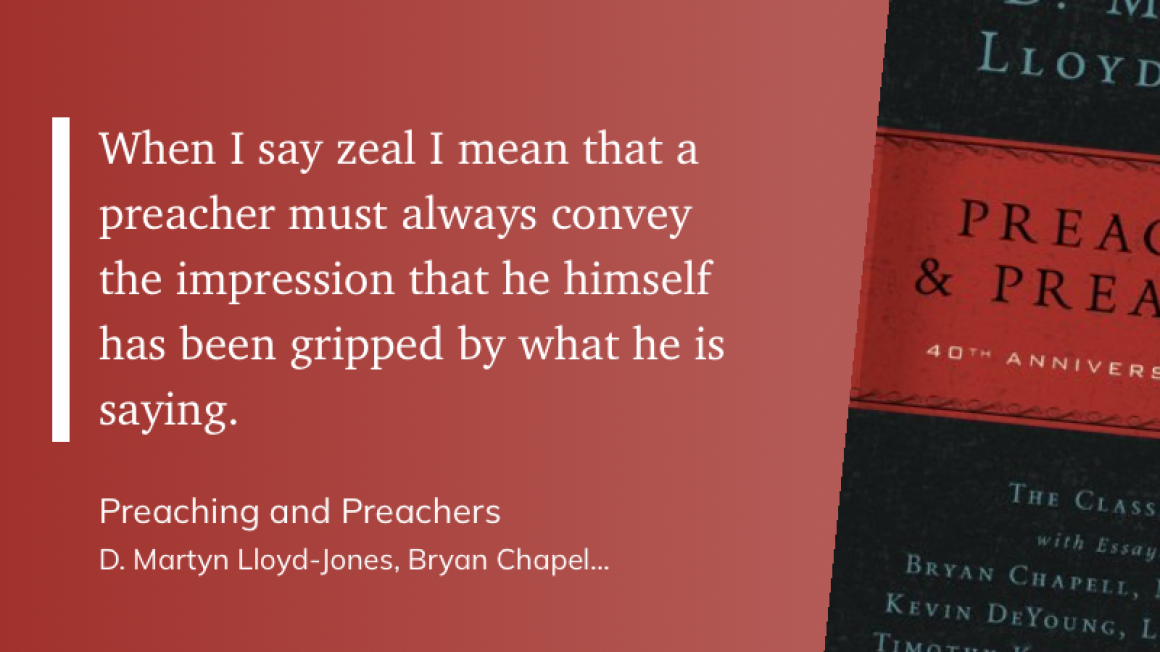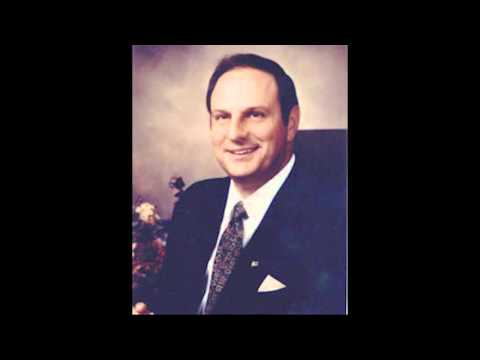“And unto man he said, Behold, the fear of the Lord, that is wisdom; and to depart from evil is understanding.” (Job 28:28)
I do not often react to things going on in the news. I cannot swing my sword in every direction. So, through the preaching of the whole counsel of God, every element in life and society will be dealt with. However, I am greatly alarmed. I am not so much alarmed by what happens, but I find myself alarmed to the response of believers.
We are aware of how the Olympics opened. In what should have been a celebration of sports became a message of inclusion. Their “goal” was mentioned in the apology. “Clearly there was never an intention to show disrespect to any religious group. On the contrary, I think (with) Thomas Jolly, we really did try to celebrate community tolerance,” “Looking at the result of the polls that we shared, we believe that this ambition was achieved. If people have taken any offense we are, of course, really, really sorry.” Anne Descamps (A spokesperson for the Olympics.). They sought to promote community tolerance.
It has been said that what they did is being misinterpreted. I believe their intentions were obvious. A drag queen portrayed Jesus. Let that sink in a moment. Tolerance was being preached. The world wants to tear down the wall of righteousness with the gospel of tolerance. Some people want us to just accept evil. We are there.
Many Christians today are preaching tolerance. What should we be preaching? We ought to be preachers of righteousness. That is what Noah was. “And spared not the old world, but saved Noah the eighth person, a preacher of righteousness, bringing in the flood upon the world of the ungodly;” (2 Peter 2:5). I am sure that he was expected to tolerate the wickedness of the world. “And GOD saw that the wickedness of man was great in the earth, and that every imagination of the thoughts of his heart was only evil continually. And it repented the LORD that he had made man on the earth, and it grieved him at his heart. And the LORD said, I will destroy man whom I have created from the face of the earth; both man, and beast, and the creeping thing, and the fowls of the air; for it repenteth me that I have made them. But Noah found grace in the eyes of the LORD.” (Genesis 6:5-8). We cannot expect God’s blessings and tolerate sin.
We need to remember that we are living in a day that sees groups like the ACLU will rush to the defense of anyone who wants to worship Satan, they will rush to the defense of anyone who believes in Eastern philosophies. But they will not rush to defend a born-again Christian who wants to take their Bible to a classroom. The world cries out for tolerance but has no tolerance for the Lord Jesus Christ. Dr. Paul Chappell stated, “We are told that you can believe whatever you would like, but don’t disagree with anyone else.”
“The world does not tolerate us. Judge David Hamilton was asked to rule on this question in the Indiana case Hinrichs v. Bosma: Can clergy pray in the name of their deity before official state meetings? Judge Hamilton (who was recently appointed to the Seventh Circuit Court of Appeals) ruled that while it was legal to open an official government meeting in prayer, that prayer must not include any language that may be considered “sectarian.” Clergy could pray in the name of God in their language (Theos in Greek, Elohim in Hebrew, even Allah in Arabic), but they could not pray in the name of Jesus Christ.” The world will not tolerate Jesus and is trying to force Christians to tolerate the attacks on Christ.
Christian, we must remember what Jesus taught. Remember what Jesus taught does not contradict Scripture.
“Ye are the salt of the earth: but if the salt have lost his savour, wherewith shall it be salted? it is thenceforth good for nothing, but to be cast out, and to be trodden under foot of men. Ye are the light of the world. A city that is set on an hill cannot be hid. Neither do men light a candle, and put it under a bushel, but on a candlestick; and it giveth light unto all that are in the house. Let your light so shine before men, that they may see your good works, and glorify your Father which is in heaven. Think not that I am come to destroy the law, or the prophets: I am not come to destroy, but to fulfil.” (Matthew 5:13-17)
We are to be salt and light. We are to be both. We cannot be light if we are not salt. We cannot be salt if we are not light. Salt preserves. Is righteousness worth preserving? Is this country worth preserving? We do so by being preachers of righteousness. We do not reach the world with a low Christ. This is not a time to be a weak Christian, but to be a good soldier of Jesus Christ. This is a time to be like Noah who preached righteousness in a world that God repented of. This is a time to be like Job who told his friends that it was wise to depart from evil.
Think about this. Job had some real friends. He was accused of living in sin. “Remember, I pray thee, who ever perished, being innocent? or where were the righteous cut off? Even as I have seen, they that plow iniquity, and sow wickedness, reap the same.” (Job 4:7-8). “Behold, God will not cast away a perfect man, neither will he help the evil doers:” (Job 8:20). “If iniquity be in thine hand, put it far away, and let not wickedness dwell in thy tabernacles. For then shalt thou lift up thy face without spot; yea, thou shalt be stedfast, and shalt not fear: Because thou shalt forget thy misery, and remember it as waters that pass away: And thine age shall be clearer than the noonday; thou shalt shine forth, thou shalt be as the morning.” (Job 11:14-17). Their reasoning for his suffering was that God only sends trials to the wicked. They were telling Job that since he was sinning somewhere secretly God was judging him publicly. They did not know Job very well. Job declared that he feared God and to fear God is a wise thing because it helps one depart from evil.
Notice what Job said in the next chapter. “I put on righteousness, and it clothed me: my judgment was as a robe and a diadem.” (Job 29:14). What we put on can be seen by others. Job put on righteousness. He may not be called a preacher of righteousness, but he preached righteousness. To put on something shows identification. If I wear a baseball hat you will think that I identify with that team. There are some hats I will not wear because I do not tolerate that team. I am using a silly example to teach a truth. The truth is this. If we preach righteousness we will not preach tolerance. We will be salt and light. We will stand for righteousness as we point people to our Saviour. We can do both! We must do both!
“You cannot have unity without compromising the truth, and to forsake truth for the sake of unity is to betray Jesus Christ.”
Charles Spurgeon
If we accommodate our faith to an intolerant culture, we betray our Saviour and lose our identity.
Job is accused of living in sin and Job says that his philosophy on life was to fear God and depart from evil. Job was a very influential man because of his philosophy. Secret sins diminish ones influence. Job was not living in sin. He was learning something about God. His “friends” had no clue what God was doing. The best thing they could have done was to sit quietly and let him grieve. But because they did not he had the opportunity to share with them something very powerful. Reread our text.
“And unto man he said, Behold, the fear of the Lord, that is wisdom; and to depart from evil is understanding.” (Job 28:28)
Our text teaches us something about Job. His view should be incorporated in every believer’s life. His view will help us respond Scripturally to things in our personal lives and even in society.
First off, notice that he believed in fearing God. Fearing God is a Godly thing. God must be the object of our fear. “Sanctify the LORD of hosts himself; and let him be your fear, and let him be your dread.” (Isaiah 8:13). When we think of God as an object we think of Him as the object of our faith. He is. Hebrews 12:2 tells us “Looking unto Jesus.” He must also be the object of our fear.
“For the LORD spake thus to me with a strong hand, and instructed me that I should not walk in the way of this people, saying, Say ye not, A confederacy, to all them to whom this people shall say, A confederacy; neither fear ye their fear, nor be afraid.” (Isaiah 8:11-12).
The context for this command is God telling the prophet to not be like the people. He was not to fear the people, he was to fear God.
Matthew Henry thoughtfully stated, “There is a proneness in the best of men to be frightened at threatening clouds, especially when fears are epidemic. We are all too apt to walk in the way of the people we live among, though it be not a good way.” He paints a vivid truth, we all will fear man or God. He who does not fear is a liar. Anyone who says they do not fear God or man is both a liar and a fool.
I believe that society is conditioning Christians to fit in. This is being accomplished through fear of man. What will people think? Will what we believe and say hurt somebody’s feelings? What will it cost to take a stand? When the whole armor of God is adorned we are to stand up and take a stand. We do so because our fear of God is greater than our fear of man. Dr. Sexton often said that the greater fear cast out the lesser fears.
Job had it right when he said that he feared God. It is that simple. The place we hold the Scriptures in our lives indicates how we view our Saviour. The Scriptures teach us to fear the Lord, therefore we must fear Him. This begs the question, how can we tell if we fear Him?
That is a good question. There are some earmarks, indicators, that will help us see if we fear Him or not. If we do not have them then we also know what actions to take.
Fear is an interesting word with varying definitions. One of Webster’s definitions is: In scripture, fear is used to express a filial or a slavish passion. In good men, the fear of God is a holy awe or reverence of God and his laws, which springs from a just view and real love of the divine character, leading the subjects of it to hate and shun everything that can offend such a holy being, and inclining them to aim at perfect obedience. This is filial fear. His Scriptural example is Jeremiah 32:39. “And I will give them one heart, and one way, that they may fear me for ever, for the good of them, and of their children after them:” (Jeremiah 32:39).
From this definition, we can glean that we must have a holy awe or reverence of God and His Laws. In other words, if we fear God we will have a high view of God. God is not the man upstairs. This reference to our all-mighty God should make us want to stand up and take a stand. Such a low view of God is why we are even discussing this thought. There used to be a day when even the unsaved had a reverence for God. That day is past.
When we study the history of the Israelite people they were in a constant cycle in which they worshipped God, then fell into idolatry, then were judged, and brought back to worshipping God. Their worship of idols was a sign of having no fear of God. When a man does not fear God he runs as far away from God as he can. When a man does fear God he lives as close to God as he can.
Consider the prophet, Isaiah. When he saw God high and lifted up, when he saw a thrice holy God, his response showed awe and reverence because he saw himself as low and needing the Lord. (Isaiah 6:1-7) When we fear God we will want to be right with Him. We will say things like “Honesty is not the best policy, it is the only policy.” This is why most Americans have little to no respect for the law. That is because there is no fear of God. Without the fear of God can there be conviction of sin? No! That is because without this fear people will not care what God thinks.
Tolerance for sin shows a lack of fear. We must realize that an unbeliever will behave a certain way. But does that mean that we as believers must not take up the mantle of being salt? If we fear God then we will be salt. It seems like the salt has lost its savor.
Here is a thought to ponder, do the things that break Jesus’ heartbreak ours? What we often tolerate are things that break His heart. Oh, may the Lord help us here! We are people of extremes. It would be easy to think that protest is being advocated. It’s not. This is where being the light God wants us to be comes into play.
If you can picture a light, a single light, you know that it does not light an entire building. It lights an area. That single light has an influence in the room that it is in. We all have a sphere of influence. God gave you an influence with people. God gave me an influence with people. We cannot influence outside of our sphere.
We have an influence in our homes. Our families ought to know from us that there are things that God does not tolerate and neither should we. Our dining room tables can be turned into pulpits as we teach our children and grandchildren what God says.
We have an influence in our communities. We work, shop, and live. We may think that we do not have much influence here, but use the influence God has given us. Do not be afraid to take a stand for the Lord if and when the time comes. We can write our representatives. We can go soul-winning. We can speak to our neighbors about the Lord. These are not small things.
We have a sphere of influence in church. This might be the easiest place to take a stand because we are surrounded by like-minded people. This influence can go a long way in helping us be the influence we need in the community. Stand with the preacher as he preaches. Go soul-winning. Pray for souls to be saved.
Nothing here has hinted at making signs, marching on the streets, and disrupting things. In fact, the best thing we can do is to be the Christian God saved us to be and let Him use us where we are. He may even extend that sphere. Too many Christians give Christianity a bad name because they are looking for a political movement when in fact we need the Lord. Fearing God will help us do this. We cannot be neutral. It is impossible to be neutral. Being neutral is a position.
Another earmark that we can glean from this definition of fear is obedience. If we fear God we will obey Him. We will have such a reverence for Him that we will not want to hurt Him with our disobedience. The Bible says…
“The fear of the LORD is the beginning of wisdom: a good understanding have all they that do his commandments: his praise endureth for ever.” (Psalms 111:10)
The emphasis is on how fearing God leads to obedience. We will do what the Bible says we should do? We will obey because we have a reverential fear of God. We will want to please Him. What specifically must we obey? Again, we go back to Job’s philosophy.
“And unto man he said, Behold, the fear of the Lord, that is wisdom; and to depart from evil is understanding.” (Job 28:28)
We are to depart from evil. Depart means to turn off. That is the opposite of tolerance. Tolerating something means that we are enduring or being patient. We may tolerate something hoping for something better. We may tolerate it because we are trying to help someone grow. However, there are things we just need to turn off because of how it influences us and because of how destructive it is.
American Christians have not turned off some things and have allowed the world’s preaching of tolerance to persuade them to preach the same message.
I ask you, why was Abel killed? “And Cain talked with Abel his brother: and it came to pass, when they were in the field, that Cain rose up against Abel his brother, and slew him.” (Genesis 4:8). Cain got mad at Abel because Abel was not going to tolerate this evil in his brother’s life. I can see him pleading with his brother to do the right thing and depart from evil, but Cain could not tolerate Abel’s preaching of righteousness. Abel could have turned a blind eye to his brother. That would have been the easy thing to do because they were brothers. Instead, Abel told Cain to turn off the evil.
Moses, after he received the Ten Commandments, taught the people. He never taught the people to tolerate false religion. “He that sacrificeth unto any god, save unto the LORD only, he shall be utterly destroyed.” (Exodus 22:20). Moses knew that if false religion was tolerated then it would be the downfall of the Israelite people. It had to be turned off.
The truth is that we are not willing to turn off evil. We play TV shows and movies filled with horror, violence, and immorality. These shows are disguised entertainingly so that we will tolerate them in our homes and play them for our children. This subtle message has latched itself onto our thinking and we preach tolerance in other areas of life. If we fear God we need to turn it off.
Never be ashamed to turn off evil. To do so is to identify with the Lord and the truth. The church, the believers that make up a local assembly, need to identify with the truth. We are the pillar and ground of the truth. (1 Timothy 3:15). Do we want the praise of man or the praise of God? The answer is clear therefore our voice should resonate clearly that where God stands is where we stand. We will not allow evil in our homes, in our churches, and in our personal lives. We may not be able to control what others may do, but as for us we fear God and will depart from evil. There are just some things we will not put up with.





